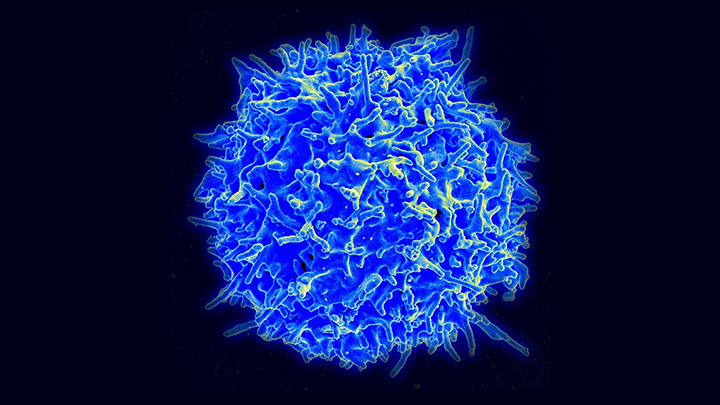Trinity researchers have discovered a rare, new cell in the immune system with “Jekyll and Hyde” characteristics that could lead to more effective vaccines in the prevention of infections such as MRSA, an infection-causing bacterium that is resistant to some common antibiotics.
The cells play an important role in the body’s immunity to infection but when left unregulated, they also mediate tissue damage in autoimmune disorders. In addition to leading to more effective vaccines in the future that could prevent infections like MRSA, the discovery may also aid in the search for novel therapies to combat autoimmune diseases such as rheumatoid arthritis and multiple sclerosis.
The research was led by Kingston Mills, Professor of Experimental Immunology, as well as Dr. Sarah Edwards and Dr. Caroline Sutton, Postdoctoral Fellows in the School of Biochemistry and Immunology in the Trinity Biomedical Sciences Institute and published in the Journal of Experimental Medicine on Thursday.
Immune cells such as T cells operate to control the invasion of microbes into the body. However, if these immune cells are not regulated properly, they may attack the tissues of the body, leading to autoimmune disorders. T cell receptors (TCRs) allow them to recognise components of incoming infectious agents with precise specificity. These TCRs enable the T cells to combat the infection efficiently.
Mills explained: “Until now scientists thought that there were two discrete populations of T cells, expressing either ‘αβ’ or ‘γδ’ TCRs. The αβs are the most common T cells in the body. They play a key role in remembering prior infection or immunisation and thereby help protect us against re-infection and mediate vaccine-induced protective immunity.”
However, the other type of TCR plays an important role too. “The γδs are more prevalent at mucosal surfaces, such as the lung or gut, and provide an immediate first line of defence against pathogens that invade through these routes,” Mills stated.
Describing the team’s new discovery, Mills outlined: “We have discovered a new cell type that expresses both αβ and γδ TCRs. This rare population of chimeric or hybrid αβ-γδ T cells has properties of both αβ and γδ T cells. Importantly, they are normally highly activated and poised to act as first responders to control bacterial infection. However, given this high level of activation, they are effectively ‘Jekyll and Hyde cells’ because in certain contexts they can also precipitate autoimmune responses.”
Using a model of Staphylococcus aureus infection, the team demonstrated the rapid mobilisation of these cells and their efficiency in destroying microbes from the body. By inducing these hybrid cells, there is a possibility of identifying and developing more effective vaccines against infectious diseases.
Mills added: “In a model of autoimmune disease, we found that the hybrid T cells can also trigger the inflammatory cascade that mediates tissue damage in autoimmunity. Therefore, approaches for inhibiting these highly activated immune cells in susceptible individuals may open up new approaches for the treatment of autoimmune diseases such as psoriasis and multiple sclerosis.”






